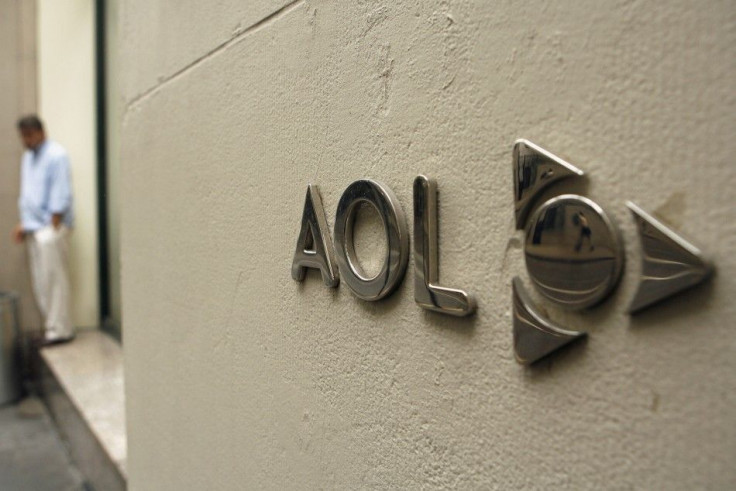Can Starboard Value's Effort Put AOL Online Again?

Thursday will see a showdown over the near-term future of AOL (NYSE: AOL), the No. 7 website, which in its heyday was American Online, the biggest e-mail provider as well as a company big enough to swallow Time Warner.
That $164 billion deal, announced in January 2000, was the biggest-ever takeover up to then. It was hailed as the triumph of new electronic media over the magazine empire founded by Henry R. Luce in 1923.
The deal turned into one of the greatest-ever disasters. By the time the renamed AOL spun out of Time Warner in December 2009, the new AOL was valued at only $2.5 billion and Time Warner at $36 billion.
There has been no growth since. Based on Tuesday''s close of $27.21, up 40 cents, AOL's market capitalization is $2.54 billion; Time Warner is valued at $33.17 billion. However, just before it spun off AOL, Time Warner also spun off Time Warner Cable (NYSE: TWC), now the No. 2 cable operator, which is valued at $24 billion.
New York-based AOL, managed by CEO Tim Arrmstrong, 41, a former senior executive for Google (Nasdaq: GOOG), the No. 1 search engine until 2009, is under attack: Starboard Value Management, a New York hedge fund, has acquired 5.3 percent of AOL shares and mounted a proxy fight for AOL at the annual meeting.
Starboard has already won without winning: AOL shares are up more than 80 percent this year and 40 percent for the past 52 weeks.
Starboard principal Jeffrey C. Smith, 39, argues that AOL isn't maximizing its assets, online properties including TechCrunch, HuffingtonPost and Patch, as well as patents acquired in its heyday when it snapped up pioneer Internet properties such as Netscape Communications and UUNet.
Starboard has won mixed support from advisory services for institutional investors: Institutional Shareholders Services urged the election of Smith and colleague James Warner, 58, for two of three contested seats on the board of directors.
Glass Lewis, the service owned by the Ontario Teachers Pension Plan Board, backed just Smith. Finally, Egan-Jones Ratings backed management.
The recommendations are key, because large institutions control about 37 percent of AOL's shares.
Fighting back, AOL's Armstrong has argued the company is turning the corner: First quarter net income surged 400 percent to $21.2 million, or 22 cents a share, although revenue eased 4 percent to $529.4 million.
More than $1 billion came from Microsoft (Nasdaq: MSFT), the world's biggest software company, for more than 1,000 patents, and the proceeds are to be passed on to shareholders.
That's why AOL shares have gained 80 percent this year, and management has been incentivized to deliver better results.
On Monday, the company announced May traffic on Patch rose 14 percent from April with record revenue. This local news service is intended to spur traffic, as well as ads that once went to local papers or to Craigslist, itself now partially owned by eBay Inc. (Nasdaq: EBAY), the biggest auctioneer.
Last month, Third Point Capital, managed by New York investor Daniel Loeb, signed a standstill agreement with another damaged site, Yahoo (Nasdaq: YHOO), the No. 3 search engine, after acquiring about 6 percent of its shares.
There, research found CEO Scott Armstrong had filed an embellished resume with the U.S. Securities and Exchange Commission, as had another director. He quit, and Yahoo now has its third boss in a year.
AOL, though, likely won't suffer that same fate. But knowing that Starboard and other investors are agitating for more will likely keep Armstrong's nose to the grindstone for months to come.
© Copyright IBTimes 2025. All rights reserved.






















